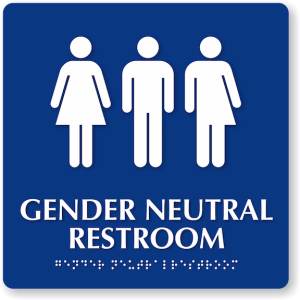I used to be a political liberal, if you can believe it, a proud liberal – way back in the days when orthodox liberalism involved a belief in things like Social Security, labor unions, race equality, free speech, anti-Communism, and a strong national defense. The liberalism, in other words, of Franklin Delano Roosevelt and Harry Truman and John F. Kennedy.
But then liberal orthodoxy began to shift. Radically. It first came to include abortion rights. I didn’t immediately respond by giving up liberalism. Instead, I said to myself, “I’m a liberal – with the exception of abortion rights.” But liberalism continued to shift much further, adding increasingly far out A, B, and C as articles of the liberal creed. So I said, “I’m a liberal – with the exception of abortion rights plus A, B, and C.”
One day, it finally occurred to me that I was a Swiss-cheese liberal: my version of the liberal creed had very many holes in it – as many holes as there were (and still are) in the Catholic creed of cafeteria Catholics. (Thereby hangs a tale.) So I gave up and decided that I was no longer a political liberal; I must be a political and cultural conservative.
Now, you may want to say, I should have given up on liberalism as soon as it added abortion rights to the liberal creed. I agree – now. But like many people who started out as I did (including many Catholics), I wasn’t alert enough to understand when it first happened how fundamental this is. Abortion is so obviously wrong that persons who believe in it its rightness must have defective faculty of judgment. If they could make a mistake on abortion, it was clear that they were likely to make mistakes on many other things.
Saying that I was a liberal except for abortion was something like a German of the 1930s saying that he was a Nazi except for the anti-Semitism. Anti-Semitism was of the essence of Nazism. And if the Nazis were mistaken about something so obviously wrong as anti-Semitism, it was likely that they had a defective faculty of judgment and would eventually be mistaken about many things. And so it happened.
To be a liberal today, you have to believe in many absurd things. For instance, you have to believe:
- that unborn babies are not babies, are not human beings;
- that sexual relations between two men or two women are perfectly natural;
- that, therefore, only narrow-minded bigots would oppose same-sex marriage.
Newly added to the liberal creed are these two articles:
- that a man is a woman if he feels he’s a woman, and that a woman is a man if she feels she’s a man;
- that it’s bigotry to hold that men’s rooms should be reserved for men and women’s rooms should be reserved for women.
Some liberals, however, are not quite as “progressive” as others. They haven’t yet fully embraced these last two articles. But as the aliens say in the science-fiction movies: surrender, resistance is useless. They must surrender and will, before long. By November of this year, the Democratic candidate for president (whether Bernie Sanders or Hillary Clinton) will, in order not to lose the liberal vote, have to defend mixed-use restrooms as a fundamental human right, on all fours with life, liberty, and pursuit of happiness.
This isn’t a mere guess; it’s all but written by fate.
To be an orthodox liberal today, then, you have to believe an ever-growing list of items that are not simply erroneous but downright absurd. I imagine that in the future – maybe ten or twenty years from now – liberalism will require its adherents to believe that a person is a bunny rabbit if he or she “identifies” as a bunny rabbit.
Will the day come that a liberal will have to respect the opinions of persons who say that 7 plus 5 equals something other than 12? Perhaps. After all, if you contend that Bruce Jenner is a woman, why can’t you contend that mathematics is nothing but a matter of subjective personal opinion? Or that my belief that my answer is the “right” one makes someone else “feel unsafe,” or is only the product of Western imperialist math, a mere social construction.
Over the past fifty years or so we have witnessed in the United States what we have called the sexual revolution. I suspect it is much more than that. Sex was only the opening wedge. Philosophers and moralist and popes often speak of relativism – even the dictatorship of relativism – and things like narcissism, nihilism, radical autonomy, the age of pure will, and other such high notions. But it’s even more radical than that.
It is a revolution in favor of absurdity; a revolution against rationality; a revolution against civilization. Against reality itself.
















